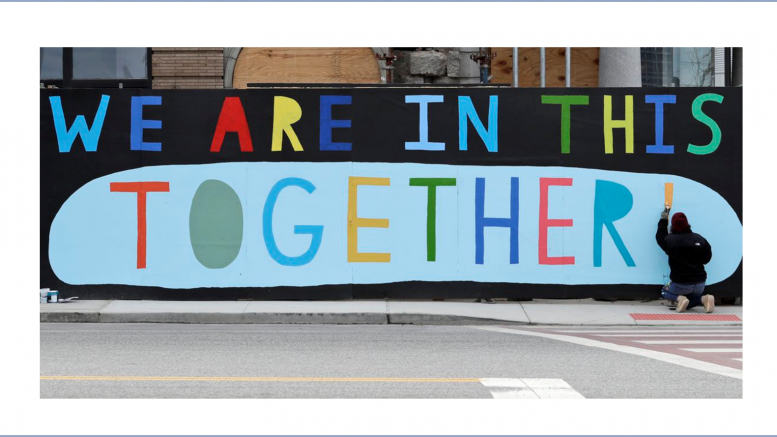Last week, a series of articles expounded on the potential impact the SARS-Cov-2 virus could have on the human brain. I would not recommend them to anyone – unless you have a passionate interest in anatomy or enjoy a gory read.
But it set me thinking about how the lockdown and the aftermath has been impacting our mental faculties. This pandemic, we all agree, is a decisive punctuation point in our lives and careers… so it will likely have a fair amount of impact in the way we act, behave and respond in the year ahead
- Micro moments matter. From the start of the working day, there are micro moments now (when the manager rings, when the team call happens, when the client calls) when you need to be at the top of your game. Unlike in an office where you are “in your role” through the day, WFH allows you to peak at the micro-moments and deliver optimal impact. Maybe less will finally become more – like most clients keep wishing it would!
- Stress is not a bad thing – many experts refer to it as a “precursor to action”. Staying in a state of stress is a different matter… that drives a neuro-chemical chain reaction in our body that is debilitating. That’s why experts talk about the need to disengage. But we write off the importance of “Stress” in our life to our own peril I believe – embracing it makes for a more composed life & day at work. The brain makes the most optimal moves when it is put under pressure
- What we take forward (post this phase) will be important. A lot of things have changed around us, with us and because of us. I’m not talking about our exercise routine, our diet, what we baked or cooked etc. (all of which are important, BTW – just not what I am referring to here). I believe that we will look back in 6 months / 1 year / 2 years… and will realise that we took away a few behavior traits, insights, relationships, thoughts & feelings that changed us permanently. What will those be? That’s worth thinking about, I believe
- Change is not the enemy – much like Stress. Lack of understanding of consequence is. When companies lay off people, change strategy, replace IT systems, move headquarters etc – they invest way too much time & effort in explaining what & how & when & where. They should instead focus on why – I believe. Answering that question allows leaders to provide context, lay out the possibilities and give the whole flaming thing a purpose. Building the story of Why leads to a more respectful, engaged, transparent – and cerebral – conversation on where the company is going… and why this change is needed
- Humans were built for this. If there is one thing Humans are the very best at doing among all the other species that inhabit our blessed planet… it is the ability to adapt. We are genetically designed to be flexible. And to collaborate. Our brains are primed to find ways to fit in, fiddle and fix. We do it well – and we should be doing a lot more of it than now.
What really worries me about the way our leaders have chosen to go about dealing with this crisis – is the absolute lack of collaboration that exists across the world. We have a shared problem – probably the first and biggest common problem that every nation on the face of Earth has faced collectively. And yet we stand divided – on nationalistic, moralistic grounds; driven by prejudice and distrust; riven by discord.
We can do better than our leaders – by keeping our genetic prowess going, by reaching out, engaging, discussing, sharing and networking. I have found it easier to start conversations with busy CEOs, marketing heads, lawyers and deal makers in the last few weeks – not simply because they are bored & have more time, but because it is possible to find common cause more easily today. I like doing it because it challenges me – keeps the Covid brain going.
The views and opinions published here belong to the author and do not necessarily reflect the views and opinions of the publisher.



Be the first to comment on "The Covid Brain: Priming the beast that feeds"